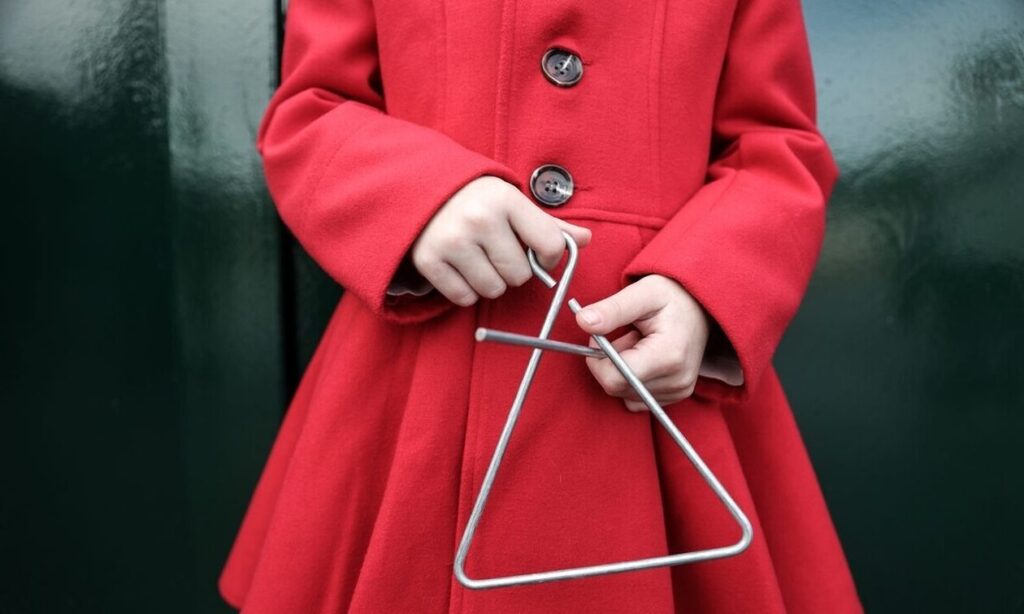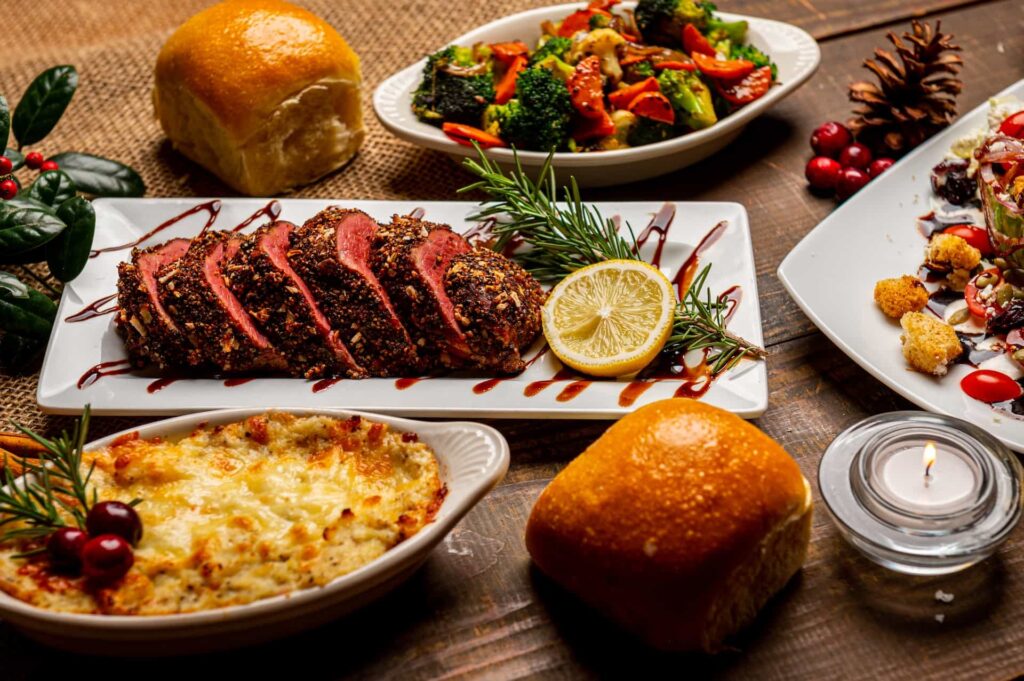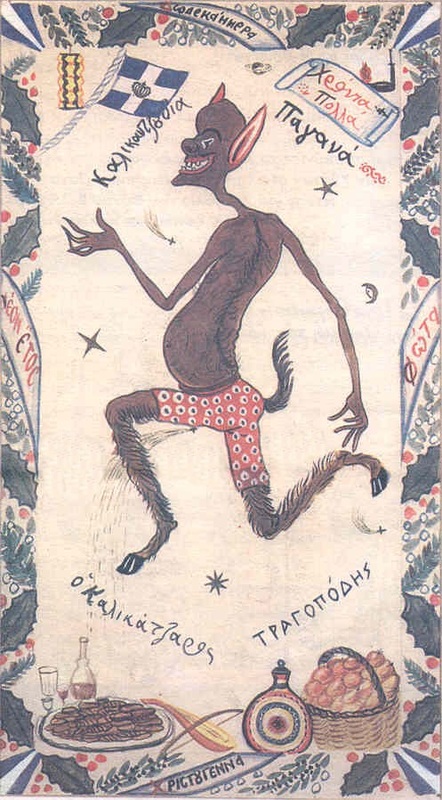Christmas in Greece is a magical time filled with unique customs and traditions that reflect the country’s rich cultural heritage. In this blog, we’ll explore some of the most cherished Christmas practices, both modern and old, that make this season special.
1. The Kalanda (Carols)
Modern Tradition
Children across Greece sing kalanda, traditional Christmas carols, on Christmas Eve, New Year’s Eve, and the Epiphany (January 6). Carrying small metal triangles or even traditional instruments, they visit homes to sing for neighbors and receive treats, money, or sweets in return.
My Experience
When I was a kid, kalanda was one of my favorite traditions. I’d go with my brother and our neighbor and friend, Thomas, whose family runs the Hristos Mastoras Olive Press. We started from Kontogiannatika at around 8:30 AM, walking through Guera, Kusatika, and finally Loggos. After that, we’d ask for a ride to Lakka, though one year we tried walking through Dendiatika. That was exhausting, and we arrived in Lakka much later than planned! It was always a fun time visiting neighbors and exploring the island.
Ancient Roots
This tradition dates back to ancient times, where songs were sung to honor the gods or herald good tidings for the harvest. Over time, these songs adapted to reflect Christian themes.
2. The Decorated Boat
A Unique Greek Symbol
Instead of Christmas trees, some Greek households, especially on the islands, decorate a small boat. This custom honors Greece’s deep connection to the sea and its seafarers.
Revival of a Tradition
While the Christmas tree has become widely popular, decorated boats are making a comeback as people embrace their maritime heritage.
3. Christmas Feast
A Spread of Tradition
The Christmas table in Greece is a feast for the senses. Staples include roast pork, lamb, and stuffed vegetables, alongside sweets like melomakarona (honey cookies) and kourabiedes (butter cookies with powdered sugar).
My Family Tradition
On Christmas Eve, we’d head to my grandmother’s house, where she always prepared a slow-cooked turkey stuffed with chestnuts and resin. Her dessert spread was unbeatable—not just melomakarona and kourabiedes, but also diples, airy fried dough dipped in honey and topped with nuts. Diples are my absolute favorite!
Fasting and Feasting
Many families observe a period of fasting leading up to Christmas, making the feast even more meaningful. This fasting tradition, rooted in the Orthodox faith, adds a spiritual dimension to the celebrations.
4. Old Traditions: The Kallikantzaroi
Mischievous Goblins
According to folklore, the Kallikantzaroi are mischievous creatures that emerge during the 12 days of Christmas (from December 25 to January 6). These goblins cause trouble in homes but can be warded off by hanging garlic or burning incense.
A Fun Memory
Once, for a school celebration, I dressed up as a kallikantzaros along with other kids. We played pranks on the parents, staying true to the goblins’ mischievous reputation. It was hilarious and one of my favorite school memories.
5. Agios Vasilis (Saint Basil)
The Greek Santa
In Greece, gifts are traditionally exchanged on January 1, honoring Agios Vasilis, the patron saint of giving. Unlike Santa Claus, Agios Vasilis is celebrated for his kindness and wisdom.
My Thoughts
Pop culture has influenced many families to give gifts on Christmas Day instead, but I still follow the New Year’s tradition. There’s something special about waiting for January 1 to exchange presents and celebrate the start of the new year.
Conclusion
Greek Christmas customs are a beautiful blend of faith, history, and community spirit. Whether it’s singing carols, sharing a festive meal, or recalling age-old tales, these traditions bring families and friends together, making the season truly special.
This year, why not embrace some of these customs to add a Greek twist to your celebrations?






